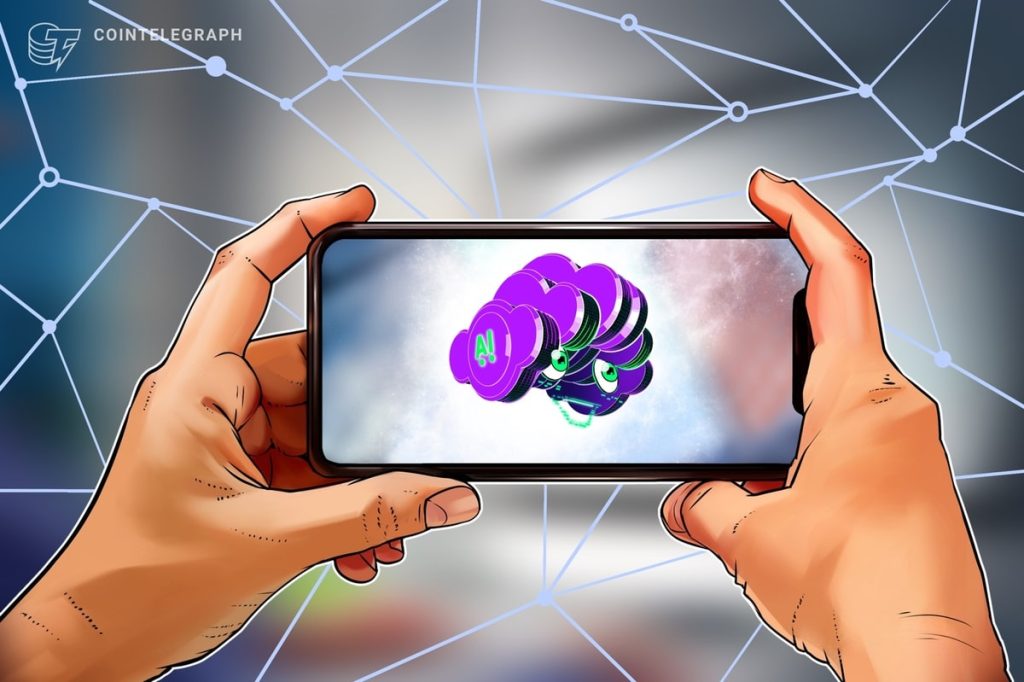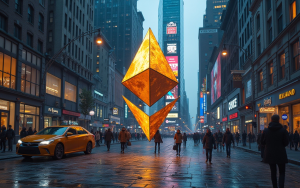AI-generated content needs blockchain before trust in digital media collapses

Opinion by: Roman Cyganov, founder and CEO of Antix
In the fall of 2023, Hollywood writers took a stand against AI’s encroachment on their craft. The fear: AI would churn out scripts and erode authentic storytelling. Fast forward a year later, and a public service ad featuring deepfake versions of celebrities like Taylor Swift and Tom Hanks surfaced, warning against election disinformation.
We are a few months into 2025. Still, AI’s intended outcome in democratizing access to the future of entertainment illustrates a rapid evolution — of a broader societal reckoning with distorted reality and massive misinformation.
Despite this being the “AI era,” nearly 52% of Americans are more concerned than excited about its growing role in daily life. Add to this the findings of another recent survey that 68% of consumers globally hover between “somewhat” and “very” concerned about online privacy, driven by fears of deceptive media.
It’s no longer about memes or deepfakes. AI-generated media fundamentally alters how digital content is produced, distributed and consumed. AI models can now generate hyper-realistic images, videos and voices, raising urgent concerns about ownership, authenticity and ethical use. The ability to create synthetic content with minimal effort has profound implications for industries reliant on media integrity. This indicates that the unchecked spread of deepfakes and unauthorized reproductions without a secure verification method threatens to erode trust in digital content altogether. This, in turn, affects the core base of users: content creators and businesses, who face mounting risks of legal disputes and reputational harm.
While blockchain technology has often been touted as a reliable solution for content ownership and decentralized control, it’s only now, with the advent of generative AI, that its prominence as a safeguard has risen, especially in matters of scalability and consumer trust. Consider decentralized verification networks. These enable AI-generated content to be authenticated across multiple platforms without any single authority dictating algorithms related to user behavior.
Getting GenAI onchain
Current intellectual property laws are not designed to address AI-generated media, leaving critical gaps in regulation. If an AI model produces a piece of content, who legally owns it? The person providing the input, the company behind the model or no one at all? Without clear ownership records, disputes over digital assets will continue to escalate. This creates a volatile digital environment where manipulated media can erode trust in journalism, financial markets and even geopolitical stability. The crypto world is not immune from this. Deepfakes and sophisticated AI-built attacks are causing insurmountable losses, with reports highlighting how AI-driven scams targeting crypto wallets have surged in recent months.
Blockchain can authenticate digital assets and ensure transparent ownership tracking. Every piece of AI-generated media can be recorded onchain, providing a tamper-proof history of its creation and modification.
Akin to a digital fingerprint for AI-generated content, permanently linking it to its source, allowing creators to prove ownership, companies to track content usage, and consumers to validate authenticity. For example, a game developer could register an AI-crafted asset on the blockchain, ensuring its origin is traceable and protected against theft. Studios could use blockchain in film production to certify AI-generated scenes, preventing unauthorized distribution or manipulation. In metaverse applications, users could maintain complete control over their AI-generated avatars and digital identities, with blockchain acting as an immutable ledger for authentication.
End-to-end use of blockchain will eventually prevent the unauthorized use of AI-generated avatars and synthetic media by implementing onchain identity verification. This would ensure that digital representations are tied to verified entities, reducing the risk of fraud and impersonation. With the generative AI market projected to reach $1.3 trillion by 2032, securing and verifying digital content, particularly AI-generated media, is more pressing than ever through such decentralized verification frameworks.
Recent: AI-powered romance scams: The new frontier in crypto fraud
Such frameworks would further help combat misinformation and content fraud while enabling cross-industry adoption. This open, transparent and secure foundation benefits creative sectors like advertising, media and virtual environments.
Aiming for mass adoption amid existing tools
Some argue that centralized platforms should handle AI verification, as they control most content distribution channels. Others believe watermarking techniques or government-led databases provide sufficient oversight. It’s already been proven that watermarks can be easily removed or manipulated, and centralized databases remain vulnerable to hacking, data breaches or control by single entities with conflicting interests.
It’s quite visible that AI-generated media is evolving faster than existing safeguards, leaving businesses, content creators and platforms exposed to growing risks of fraud and reputational damage.
For AI to be a tool for progress rather than deception, authentication mechanisms must advance simultaneously. The biggest proponent for blockchain’s mass adoption in this sector is that it provides a scalable solution that matches the pace of AI progress with the infrastructural support required to maintain transparency and legitimacy of IP rights.
The next phase of the AI revolution will be defined not only by its ability to generate hyper-realistic content but also by the mechanisms to get these systems in place on time, significantly, as crypto-related scams fueled by AI-generated deception are projected to hit an all-time high in 2025.
Without a decentralized verification system, it’s only a matter of time before industries relying on AI-generated content lose credibility and face increased regulatory scrutiny. It’s not too late for the industry to consider this aspect of decentralized authentication frameworks more seriously before digital trust crumbles under unchecked deception.
Opinion by: Roman Cyganov, founder and CEO of Antix.
This article is for general information purposes and is not intended to be and should not be taken as legal or investment advice. The views, thoughts, and opinions expressed here are the author’s alone and do not necessarily reflect or represent the views and opinions of Cointelegraph.












